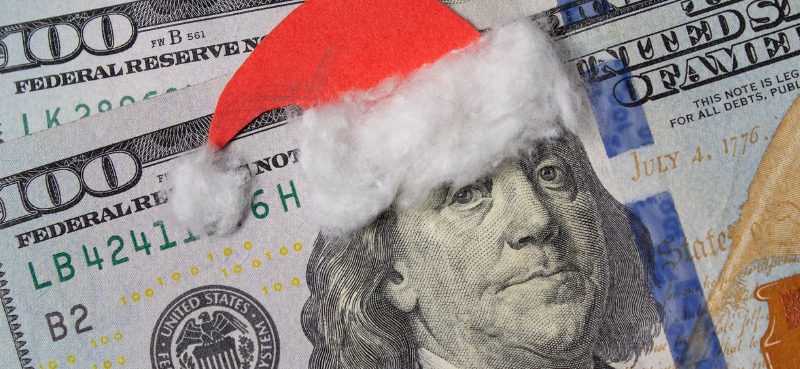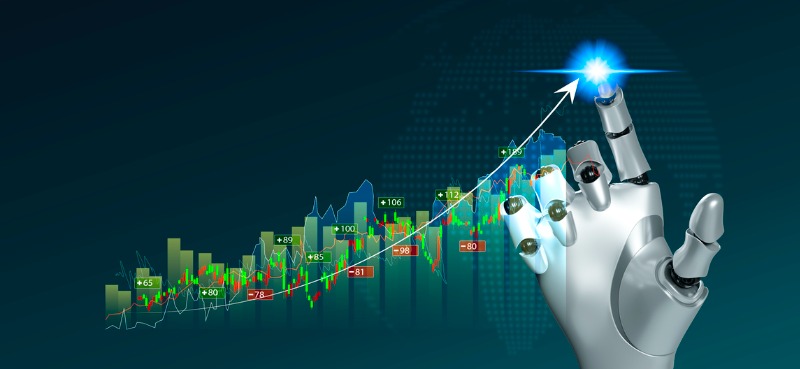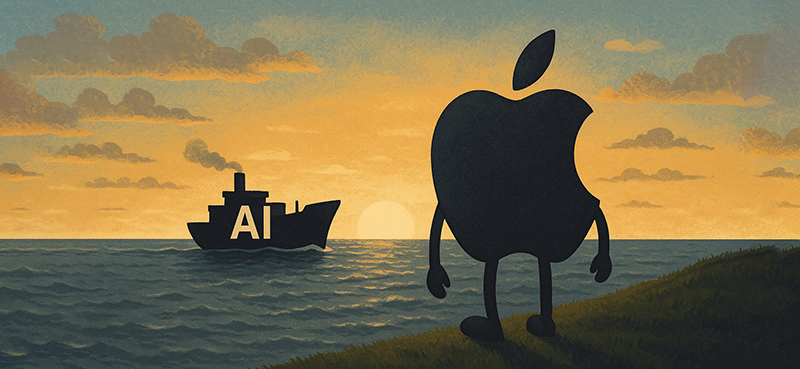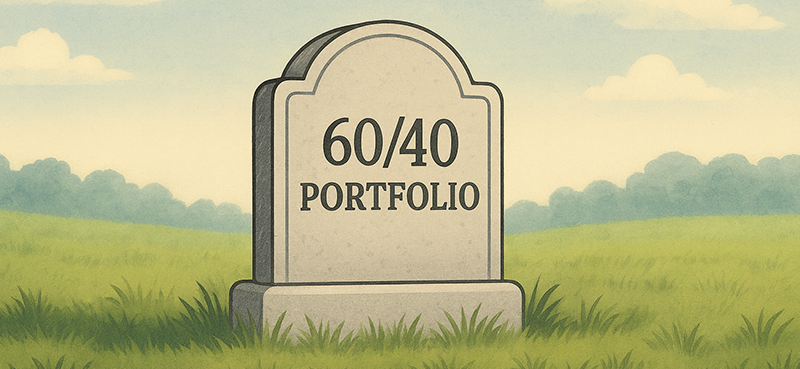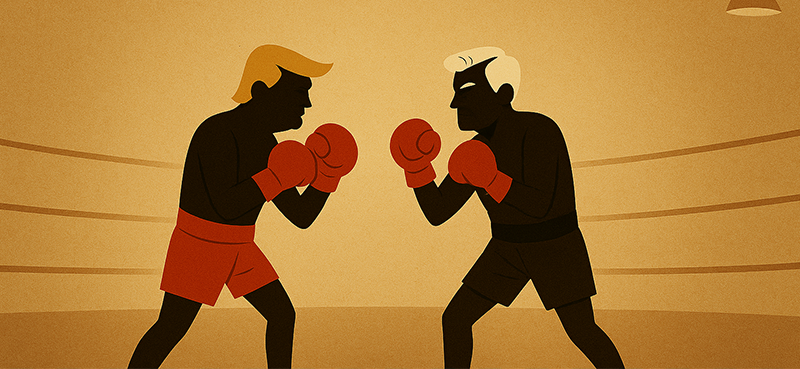The market continues to be volatile. Daniel and I discuss the political theatrics surrounding the U.S. debt ceiling… [0:40]
Two Fed presidents resigned this week over controversial personal stock trades. Daniel goes on a quick rant about why this is a sliver of positive news… and why you shouldn’t feel sorry for them. [6:50]
As interest rates continue to move higher, investors are realizing inflation isn’t transitory. For months, I’ve been saying inflation is the biggest risk to the markets. Today, I lay out why tech stocks are hurt the most by higher rates… and why we haven’t seen a bottom in the supply chain woes. [8:35]
Meanwhile, rising costs have led a couple of major corporations to issue lower guidance… Be prepared: As winter approaches—and particularly the holiday season—hundreds of companies across sectors will be forced to do the same… [11:40]
And, with supply chain pressure expected to continue for months, Daniel and I share several names to pay attention to as capital flows out of growth stocks and into cyclical/value plays. [25:14]
Frank Curzio
Ep. 801: Inflation could ruin Christmas this year
Wall Street Unplugged | 801
Inflation could ruin Christmas this year
Announcer: Wall Street Unplugged looks beyond the regular headlines heard on mainstream financial media to bring you unscripted interviews and breaking commentary direct from Wall Street, right to you on Main Street.
Frank Curzio: What’s going on out there? It’s September 30th. I’m Frank Curzio, host of the Wall Street Unplugged Podcast, where I break the headlines and tell you what’s really moving these markets. Moving these markets, a lot of fear, debt ceiling problems, companies warning, interest rates rising. I’m getting emails like crazy. I’m going to bring in Daniel Creech, Senior Analyst at Curzio Research. Dan, what’s going on? A lot going on in the markets, huh?
Daniel Creech: Yeah, absolutely. Some more volatility. What’s happening, Frank? Hello, everybody. Yeah, this is a good week.
Frank Curzio: Yeah. It’s it kind of puts things in check, because every 2%, even last week, it was a Monday was Evergrande. Everyone went crazy. And by the end of the week, I think we finished up. Now, we have all these other problems right now and everybody’s worried, but there are more and more risks, and as you add more risks to the marketplace, you have to worry. It’s not just, “Hello, stocks are expensive,” but interest rates are low. Well, interest rates are rising now, right? Do we have debt issues to worry about? Do we have systemic risk in China? So, let’s cover one of the things that are in the news right now. I’m going to be honest with you. I hate fricking covering this, but we’re going to cover it anyway, because it’s in the news and everybody wants to know, but that’s a debt ceiling. So, a question for you, Daniel, is the debt ceiling something investors need to worry about?
Daniel Creech: No. No, in short. But kudos to Jamie Dimon, the CEO of JPMorgan, the largest bank by assets, who is playing his part on the political side, who yesterday, I think it was yesterday on CNBC, that said he’s preparing for a default from the United States because the politicians can’t reach an agreement. I just think that that’s hilarious. He wants a bipartisan bill to come together to get rid of the debt ceiling completely, which of course they do, because he’s one of the most connected and wealthiest people in the world, let alone this country, and he’s powerful. This is just a lot of smoke and mirrors to take distractions off of everything else. So no, they’ll come to an agreement.
Daniel Creech: I think something’s coming to the floor today that has “bipartisan” support to just basically do that on its own. That won’t happen. They’re always going to sneak something in there to hurt us a little, folks. Well, not you, Frank, since you’re a bigwig and rubbing shoulders from Dallas. I’m still not over that. But guys like me, we’ll have to deal with that. But no, you investors out there, any volatility around the debt ceiling and interest rates going on in the short-term I think is a buying opportunity. I’m still cautiously long, Frank.
Frank Curzio: I see. So, let’s bring everyone in here, because you hit a debt ceiling, so you might not understand what that is. It’s how much money the federal government may borrow to meet its existing obligations. That’s a textbook definition. So, without an agreement, without meeting to raise that limit, the Treasury Department can’t keep paying the federal government’s bills. So, government employees, everything, they’re not going to get paid, and that will result in a US default, which could take place in October if they don’t come to an agreement. It’s great. Default, first time, US default. Again, things like systemic risk, the big words that attract a lot of people, but I’m not saying this is a non-event. It pretty much is. We’re not saying it’s a non-event, because I think it’s funny when you have to live the politics here, because right now, if you look, the Democrats have full control and they could pass it. They should be able to pass this thing, but there are some Democrats that won’t.
Frank Curzio: So, what the Republicans are doing, and the Republicans are doing exactly what the Democrats did, they made this hard as hell. They’re going to ask for everything they want for the past debt ceiling, and it’s on them, and they did it before and before and before. As long as they don’t work together, they all want to fuck each other. That’s the way it is with politics. They don’t care about anybody. They care about themselves, and they want to screw the other person. So, what the Republicans want is, they want them to raise the debt ceiling 100% for the Democrats. And yet, you still have some Democrats that are like, “Nah, I don’t know if I’m going to do this,” and they’re worried.
Frank Curzio: So, not that they don’t want to raise the debt ceiling, but it’s attached to two separate bills, and the other bills will fund traditional infrastructure, which a couple of Democratic senators, that are not approving this, I love because the reason why they’re saying this is they’re afraid of inflation. And we’re going to talk about that in a minute, because inflation is running wild. We know it’s not transitory. Every single piece of data on inflation is getting worse. It hasn’t bottomed yet. And when I say it hasn’t bottom yet, it’s not like Delta and COVID. About two, three weeks ago, we saw hospitalization rates getting better. We saw the percentage of people infected going down. We finally saw a bottom, and now, they’re getting better, just like a lot of scientists or whatever predicted. And now, you can invest accordingly. When something bottoms, you can invest accordingly. Right now, we’re not seeing a bottom in that trend, which we’ll cover in a second.
Frank Curzio: But the whole debt ceiling thing, here’s the scenario. They don’t pass it, they default, the market crashes, and then all these guys are going to look at polls, and it’s going to say that we want to hang every single one of them, and everybody hates every one of them. We want to beat the shit out of every politician, and then, they are going to all come together and they’ll be like, “Holy shit, okay, we have to pass this.” Just like they did with TARP when they didn’t pass it the first time. So then, they pass it the second time, they say, “Holy shit, this is real. We can’t look at polls. The whole global markets are crashing.” And then they’ll pass it, and things get back to…
Frank Curzio: I don’t think it’ll get to that point. That’s why I say it’s pretty much a non-event, because even if it does and the markets do crash and it has a US default, which I think the date Yellen is saying is around the 13th.
Daniel Creech: 18th, I believe. October 18th.
Frank Curzio: Is it the 18th? I think it’s the 18th, but Yellen said something like the 13th. I don’t know. Maybe I’m wrong on that, but I thought I saw the 13th. So the 18th, but I heard certain people mentioned the 13th or whatever it is, a week apart. They should get rid of this. It’s a joke. If they pass it, and they don’t do it permanently, we’re going to run into this problem in December, December 8th, I think, is the next time that this comes around with debt ceiling to raise it.
Frank Curzio: So again, I love what Jamie Dimon’s doing. Jamie Dimon always talks about politicians, how they don’t get along anymore. Democrats and Republicans always had different opinions, and they used to argue, and they used to go out for drinks. Now, they actually hate each other. They actually hate each other, these politicians, and they’re not agreeing on anything, they don’t care about the people. It’s just about power. And right now, that’s how you have to focus as investor, where this could be a big thing with the market crash. It could be a trading opportunity. Overall, I wouldn’t be selling my long-term positions into this, but I don’t know if you agree with my whole thesis on that.
Daniel Creech: Yeah, I do. Like I said, we kind of disagreed about this yesterday. I felt like the narrative around the market volatility was around debt ceilings in these infrastructure bills and all that, and I just think that’s ridiculous. And I’m not putting these words in your mouth, Frank, and I’m not saying you’re taking this argument, but for you listeners out there, if the world has changed, like Frank is saying, where they used to get along and go out and have beers after disagreement. Now they hate each other, you and I shouldn’t have hate in your heart, but let these guys hate each other. These are the worst of the worst, okay? So, if they don’t have any friends, who the hell cares? All they do is screw you over. And I got to touch on one thing first real quick, Frank, did you see the two Dallas Fed Presidents from Boston, or excuse me, Dallas Federal Fed President and the Boston Fed President resigning?
Frank Curzio: Yes.
Daniel Creech: And why are they resigning?
Frank Curzio: I didn’t see any news on it.
Daniel Creech: Basically, two advocacy groups called them out on what they would consider you and I for insider trading. Because does it shock anybody out there that the guys that make the policy to turn on the Willy Wonka and Wizard of Oz printing press to print money and bail out their friends, to suppress and hurt every middle-class and poor person in the United States and trickle effect around the world, was buying and selling stocks and/or ETFs and/or municipal bonds during the pandemic? Does that shock anybody? If it does, you really need to pay attention a lot more to what Frank and I are saying and wake up, because these guys, you and I would be thrown in jail for half of what this is. Okay?
Daniel Creech: And they cite health reasons. I don’t wish bad health on anybody, but get the hell out of here with health reasons. One of the guys made over 30 stock trades, multi-million dollar stock trades, when you know what you’re going to bail out, when you know what you’re going to come to the rescue. That’s disgusting. Man, you want to talk about these guys, they ought to be stripped of everything. They ought to be losing their pensions, they ought to be kicked out on the street. That’s just absolutely ridiculous.
Frank Curzio: And it goes for politicians as well, right? It’s not just rag on every politician. We need them to get along to pass some of these things, and we all need an infrastructure bill. You waited a long time, you played politics. Now, you’re going to throw out the infrastructure bill at the exact worst time, Daniel, where you cannot deliver those supplies, and raw materials are going absolutely for the roof. We’re seeing companies warn, and this is where we debated yesterday when you’re like, “Hey, this debt ceiling, the market’s going to…” I said, “It’s not a debt ceiling. It’s interest rates, right?”
Frank Curzio: So, we’re seeing rates in the treasury go up, and at the highest levels, it’s going to be pulled back a little bit now. But they rose by a pretty large amount in the past week, and for me, that’s really what makes people nervous, because it’s a sign that, “Hey, inflation is here.” To me, that’s a much, much bigger risk. I don’t know if you… And there’s also another risk then too, which adds to this, but I don’t know what your thought, but for me, it’s the interest rates going high, to the highest levels in Treasury, 10 years at the highest level, I think, since June, and it happened all of a sudden. Already, the data came out, I think it was like a day ago, saying that we’re seeing fewer mortgages. It was a significant difference. If someone from me who didn’t lock in their rate yet, it’s a significant difference.
Frank Curzio: I’m seeing that, and I’m going through the whole loan process now and building a home, but I’m pushing these guys and saying, “Hey, we should get this done now.” It’s still incredibly low, but it was really, really low, and now it’s going higher, and is that a direct result of inflation? Because now you’re hearing companies warn. But to me, that was the bigger problem.
Daniel Creech: And that makes sense. I’ve got to ask a dumb question. Picture me in a classroom, and I feel like everybody wants to ask this, and I’ll be the kid to raise my hand, what changed from last week to this week? Because the Fed came out and said, “Hey, more people are in favor of raising rates maybe next year and all that,” but we already knew that. So, what happened over the weekend? Why is there more fear, and why are interest rates bumping up right now? I’ll be honest. I honestly don’t know. I think it’s more of a scare tactic between… I still think China is a huge overhang, and that’s nowhere near done. But I think the politics are getting involved on the debt ceiling too much, and yeah, that’s going to push rates up in the short-term. Again, I just don’t know what changed from over the weekend when Powell told the market exactly what they want to hear last week.
Frank Curzio: To me, a lot has changed. Well, they basically said we’re not raising rates, and we may taper a little bit. That’s why they said, which was surprising. They really need… And they said, “Oh, yeah. We do have inflation. It’s a little worse than expected. It’s going to get better.” To me, there’s a big difference, because this week you have insurance going higher, and they spiked a lot higher than anyone would think in a three-day period. For me, when I’m looking at all the data in the sources I have, and the supply chain now is remarkable. I thank so many of you. The network is so powerful, and it helps us all out. And so I encourage you, frank@curzioresearch.com, to send me emails, allow you in industries, and have just amazing data that I could share and I could help you and show you the right way to invest in this.
Frank Curzio: This was supposed to bottom, and that’s why I talked about it before, it was supposed to bottom, right? The supply chain issues, we heard from Ford, we heard from GM, heard from everybody that second quarter would bottom. First quarter was terrible. Second quarter, and this is just supply chips, this is like it’s resulting in fewer light vehicles. So, if we just take the light vehicle side, it was $3.2 million lost vehicles in Q3, which is accounted for due to the chip shortage. Okay? Everyone’s low in their numbers. We’re well over $4 million for Q4, and even in Q1, they’re going to get lowered further.
Frank Curzio: So, when you haven’t hit bottom on the trend, that’s when it’s dangerous, because you don’t know where the bottom. When COVID, you saw the bottom, you saw stocks come back. For me, I wanted to confirm it, and yeah, we got in a month late and we got a lot of good gains and amazing. We went to May, you want to confirm. We haven’t seen a bottom in this. Now, we want to throw an infrastructure package on top of this, which nothing’s going to get shipped any to it. We’re seeing raw material prices go through the roof. We’re seeing FedEx warn, saying we’re going to raise prices by the highest percentage in over 10 years. Sherman Williams, their second warning in three weeks. In three weeks, they said the persistent industry-wide raw material availability of constraints and pricing inflation we have previously reported, which was a couple of days ago, have worsened. We do not expect to see improved supply, a low raw material pricing in the fourth quarter as anticipated. As well as these headwinds, we’re narrowing our third quarter sales expectations and establishing third quarter earnings guidance.
Frank Curzio: You are going to see, warned a couple of weeks ago, you going to see even further. You’re going to see hundreds, hundreds of companies start warning. Some of them have pricing power. Chipotle’s people are going to pay whatever, their new brisket’s great, by the way, they’re going to pay for whatever. McDonald’s has pricing power, some of these companies have pricing power, a lot of them do not. Not all the restaurants do, and you’re going to see massive separation. You saw what Nike did, and Nike warned. You’re seeing Malaysia. Malaysia has been shut down as well, which is a big, big bottleneck in the supply chain. China with energy and stuff, and you’re seeing that result, getting ready for Beijing Olympics, they’re having blackouts in Northern China. All this stuff that I’m tracking, where you look, where you seeing record levels of chips being backed up in ports. Guys, this is a big deal. You’re not going to get anything for Christmas. You’re not going to get…
Frank Curzio: That’s the big, the holiday season is the biggest for how many companies? I’d say 80% of the companies see their biggest business then, whether it’s travel-related, airlines, retailers, all this stuff, right? That’s when people spend the most money, and you’re not going to be able to get stuff. Even if you’re ordering it right now, you’re not going to get stuff for the holidays. That’s the scary part.
Frank Curzio: Now, what’s different now is when you see interest rates rise, what does that mean? Because when we see interest rates rise, Daniel, you’re seeing technology companies get hit the most, and it’s confusing people, and they’re like, “Why should that happen? These guys have the best balance sheets. These guys are great.” And they had a guy on CNBC, smart guy obviously, and he’s like, “A lot of people are saying this,” and he’s like, “I have a math degree,” and whatever in 10 different maths, whatever, and he’s like, “And I can’t even explain it.” He’s like, “This is a risk that all stock should carry,” and he’s dead wrong on that, because of what he doesn’t understand, and I’m not saying he understands a lot more than I do when it comes to math, but not with stocks.
Frank Curzio: Tech stocks are the most expensive group right now. They’re trading at 30 times forward earnings, a lot of these names, even the great names. When interest rates rise, what happens? That results in higher debt costs. That means people are going to take out fewer loans, which relates and goes right into CapEx. That means you’re going to spend less money on CapEx. So now, when companies see less revenue, because you’re going to see less revenue, you’ve got to spend money to make money, less borrowing. Now, they’re going to see less revenue. If you look at advertising budgets, advertising budgets usually, especially Fortune 500 companies, are based on a percentage of sales, and if those sales go lower, that means your advertising budget goes lower. So that’s Facebook, that’s Google, which derive most of their revenue through advertising.
Frank Curzio: It’s less money they’re going to spend on Cloud. They’re not going to get rid of Cloud, Cloud’s the greatest thing, data analytics, but if you look at the Amazon calls, you look at Microsoft with Azure, you look at Google, when it comes to Cloud, they have so many different features that people are spending more and more and more and more, they’re going to cut back spending on Cloud. And when they do, what is it? That’s Microsoft, that’s Amazon, that’s Google. That’s their growth model, that’s what’s really driving those companies right now.
Frank Curzio: Apple, higher rates impacts consumers the most. And why are higher rates happening? Because we’re seeing inflation across the board in everything. Everyone is seeing it. We’re seeing prices rise across the board, which means what? It means that when it comes to the new Apple 13, are people going to pay for that? You saw the reviews on it. The battery life is fantastic, and then you have a panoramic camera that takes videos when you’re filming movies, which is probably 3% of the people. So, Apple used to sell their phones every three years. They’re trying to force it down your throat every year, but if you have the 12, which a lot of people got, because that was a fantastic phone. I have a 12, I love it. I’m not buying the 13, and I’m definitely not buying it if your costs are going up, right?
Frank Curzio: So, if you’re looking at technology companies, it impacts them the most because they’re super expensive. That’s where the CapEx flows to the most in technology right now, and you’re going to see that being pulled back, which is why that gets reigned in when you see higher interest rates. Hopefully, I explained that okay, but just to say, “Whoa. Why does it impact technology companies the most?” That’s why, because CapEx, that’s where all these companies are spending to advertise, to buy their products, for Cloud, for their software services. That’s going to get pulled back, and that’s going to result in less earnings, which these guys have good balance sheets, and they’ll probably buy back stack to make up the difference, but interest rates are by far the biggest risk to the market, Daniel.
Frank Curzio: By far, because it’s the one thing that the Fed can’t do to stop. They can’t just throw money at it to stop it. They actually have to take money out of the system with higher interest rates, you have to raise rates, you have to stop buying bonds, so forget about tapering. You’ve got to just stop, and that’s going to result in, again, a lot of money coming out of this market, and that’s the dangerous scenario. That’s why inflation is the biggest threat, and I don’t know why they’re not addressing it. It’s not transitory. We all know that. That’s the one thing that scares the shit out of me in this market.
Daniel Creech: Yeah, and that’s a great point, and you hit the nail on the head there with that, because it’ll drag on profits. And what it also does is higher interest rates makes you have to compete for capital. So, if you have a more reasonable interest rate that you can just go park money in bonds or a dividend stock, and you know that growth is going to slow because of what you just explained, then why wouldn’t you just transfer money over here instead of here. So, that makes sense. That’s a good point. Interest rates are a big deal. The Fed is a big deal, because they’re going to get behind, they’re going to have to raise rates eventually. I just don’t see how they have the balls, for lack of better word, to do it when they need to. They’re too connected. They’re too worried about everything that they do themselves.
Daniel Creech: I’ll tell you one of the big risks coming up, Frank, that we need to watch out for. Did you see Elizabeth Warren, Senator Warren call out? She must be an Austin Powers fan, because evidently Jerome “Danger” Powell is his real name. She’s not going to what? Support him in his reelection. I don’t know what time that is, his next appointee, if he’s going to stay at the Head Fed. She’s half-right, and listen up, because I’m no fan of hers or crazy liberal policies in general.
Daniel Creech: What they want to do with the Fed, the Fed is already an awful situation in what they do. Jerome Powell is a dangerous man, but not because he made the banking system weaker. He’s a dangerous man, because he’s artificially manipulated rates for over a decade. He’s a dangerous man because he’s declared war on savings for the middle-class and poor. So, Frank, think of the lost opportunity cost everybody has. If you’re anybody that has any type of savings and you don’t spend more than you make, you have earned a negative return and lost money year over year over year for over a decade. You compound that at any interest rate, and everybody would be better off. And it’s only because they wanted to prop up the economy and their connected friends. So yeah, she is right that he is very dangerous. She’s just wrong about how.
Daniel Creech: The real risk to the next Fed appoint chair, the next chairman, is that you have one side of the political aisle that wants the Fed to take on climate change, you want them to take on income inequality. They are the direct player in income inequality. It is because of the Fed and their policies that you have income inequality, the richer get rich, the poor will get poorer. So, the slight of hand here going forward, that’s going to be a huge risk. Who’s going to raise interest rates when it’s politically unpopular? I don’t know, but we’ll see what happens there.
Daniel Creech: Yeah, you make great points, though. So, you want to stick to where am I going with this on the supply chains? Like you said, it’s under a massive amount of stress and where should investors hide out? Look at strong brands, look at strong balance sheets. And the supply chain thing that pops into my head is Hanes brand. They control the majority of their supply chains. I’ll be interested to keep following that. That might even sneak its way into CRA. But you want people that have the operations close to their vest and not so much third party.
Daniel Creech: The headlines, like you always joke about with the autos, hey, it’s great that Ford was up yesterday when the market was down, because they’re going to invest $11 billion in electric vehicles, and that’s going to pay off years in the future, so buy our stock today. Okay? That’s kind of ironic, and that’s funny, but that’s the way the world works. The other side to that is you now have interest rates and everything going up, and we’re worried about that right now. I don’t see them going up real quick. We’ll see, but that’s a fun back-and-forth between us.
Frank Curzio: Yeah, it is. Elizabeth, do you know what I want to do with Elizabeth Warren, honestly? I want to give her a hug. I really want to give her hug.
Daniel Creech: Politicians, everybody needs a hug.
Frank Curzio: No, no, no, no. Not everybody. That woman needs a hug. I’ve never seen someone that angry and pissed off at every single thing. I haven’t seen her smile in four years. If you have, send a picture. I want to see it, frank@curzioresearch.com. That person’s the most, she just hates everything. I would like just one time to get up there and say, “Hey, you know what? We’re happy with the job you’re doing, whatever it is.” It’s like how do I destroy this person publicly and grandstand? And to me, it’s hilarious, but she’s someone I really don’t pay much attention to. Again, she’s great at getting headlines for the people who love her the most, and that’s what I got to give her credit for.
Frank Curzio: Just like Peter Schiff, again, you know my thoughts on Peter Schiff, great, great marketer. He should be writing a book about that instead of the market crashing for 15 years, which it hasn’t done. Good for him. He’s got people that listen to him. That’s a great book. How I could be wrong for 15 years and still increase my net wealth and just have more followers than anyone in history, which is great and good for him. That’s good. He knows how to entertain. Same with her. But when I see stuff like that and just the sound bites, to me, look, it’s getting played out. It’s getting fucking played out, Daniel.
Frank Curzio: So, to me, everybody’s saying how terrible the Fed is. It’s like the common playbook. Be fucking original. Just be original. Seriously, every politician, your job is to just destroy the Fed, right? The Fed is the enemy. That’s the enemy. Throw them under the bus, whatever. In the meantime, it’s a political organization that’s run by the current party in power, no matter who the party is, right? That’s where it’s run. We started raising interest rates. Trump was like, “Stop raising interest rates. Lower them,” and they lowered them. Same here. It’s controlled by the party, but it gets played out. It’s kind of like the Tesla thesis, like it’s a fraud. It was a fraud at 75, 200, 300, 600, 700 now, and the same guys, four, four, four, four. They don’t realize people are listening to them and getting destroyed. So, for me, that’s entertainment.
Frank Curzio: A big thing is, what you need to pay attention to, guys, is the companies and what they’re saying. A lot of companies are coming out and warning. So, we saw FedEx come out and warn. They set a 52 week low. We saw Sherman Williams come out and warn. I just told you what they said. Cal-Maine is another one that came out yesterday, egg sales, actually the stock was up a little bit, but they said that if they’re looking at the massive amount of inflation that they’re seeing, when you go buy eggs, you see the inflation there, right? But people like eggs, and they’re going to pay for it. Again, some people have pricing power, others don’t, and you have to be careful. So, you say you want to buy a company with good balance sheets, strong management teams. I get that. You have to buy companies with pricing power, because they’re going to have to raise their prices.
Frank Curzio: There’s a massive labor shortage every place. You’ve seen price of raw materials go up through the roof. They cannot get anything shipped right now. It’s almost impossible, especially if you have operations overseas. It’s almost impossible, because there’s only limited container ships. There’s a massive backlog, and even the ones that are there, you have the biggest companies of the world overbidding for them, which is screwing those specialty companies. There’s a lot of companies that are going to warn beyond, and they’re not just going to say, “Hey.” Just like Sherman Williams. You warn twice in three weeks? Like you said, Dan, what happened this week compared to, what happened in three weeks? Think about that. To see inflation, to not be able to see it in a three-week period and warn twice? That’s pretty crazy.
Frank Curzio: That’s something that, again, you have to pay attention to, because you could buy a stock. Some of these are reflected, we’re seeing the market come down. Ford is expected, I guess, now we know supply chain issues, and now the CEO is like, “Yeah, you know they’re going to last probably into 2022.” A month ago, two months ago, you were saying, “Oh, it’s second quarter,” like last month, lying to everybody. But now he’s like, “Oh, like nothing.” So, it might be factored in, just like Tesla is a fraud. It might be factored in when it keeps going higher and higher and higher. Who knows?
Daniel Creech: Absolutely.
Frank Curzio: I like to see when something bottoms out, and then you’re going to see an explosion, and people love getting ahead of that before the explosion comes. They love it. That’s what they did when the market crashed during the credit crisis. Everybody came, but a lot of smart people were right. They came in in January and said the market’s ready to go, and the market went up in January in the first couple of weeks after it sold off tremendously in 2008, right? So then, it went up, and then people forget that it fell another 30%. Okay?
Frank Curzio: You want to see that ultimate bottom somehow. You’re going to see companies buying back stocks, insider buying, especially insider buys now. If stocks are falling, you want to see, because they have a good indication of how things are. Maybe they’re oversold. Just be careful, because the warnings aren’t going to be, “Hey, we’re going to miss by 10%.” They’re going to cut them in half. And if this problem does not bottom by Q4, you’re going to do the same thing for Q1 and into Q2, and then you’re going to have uncertainty, because you’re not going to know what’s going on and you’re not going to give those year 2022 forecasts.
Frank Curzio: And when you don’t do that and you have that kind of certainty, you got away with that during COVID, that’s fine, a lot of uncertainty. Now, investors want to see certainty, and if you remove your guidance and you’re not too sure what’s going to happen, that could result in a stock really, really, really getting hammered. A good example is Sam Boston beer. Truly didn’t work out too good. It was great, but now there’s hundreds of fruity beverages and everything like that. You saw that when you removed the growth out of a company and they’re trading at a high growth mode multiple, look out. You get destroyed. You’ve got to pay attention for trends like that.
Daniel Creech: Yeah, absolutely. And on the flip side of your Sherwin Williams and FedEx warning, two key themes, two stocks to pay attention to. If you’re in my camp, and like Frank said, it is a low-hanging fruit to blame the Fed, I’ve been doing it for years just because I follow him, but Dollar Tree increased their share repurchase program by over a billion dollars. And so they’re up, I think, 14%, 15% today. Well off its high still. So, look at Dollar Tree and look at Dollar General as well. And the thesis there is that as you have inflation and higher food costs, you’re going to force millions and millions of people to go look elsewhere. So, as wages stay stagnant and prices continue higher and eats more and more of your paycheck to just go towards basic needs like food. And we’re not even going to get into energy prices going up today or the price at the pump.
Daniel Creech: But look at Dollar Tree, look at Dollar General, because the Fed is not pulling its foot off the pedal. Inflation is going to continue to get higher, and it’s going to force, just like they force people into asset prices and screw people that don’t have money to put into asset prices by lowering interest rates and killing savings rates, they’re going to continue to press people into these different stores and go off Main Street basically.
Daniel Creech: And Dollar General and Dollar Tree are popping up everywhere. I don’t know if you’ve noticed that, Frank, but they are popping up on damn near every corner. Dollar General just went up on the island here from a place I just moved at. So, they’re going to pop up everywhere, they’re going to continue to get more consumers, and they’re going to have a lot of flexibility with either share repurchases, dividends, special dividends will come into play at some time. Those are the kinds of names you want to look at just because that’s the way the interest rates and the income inequality is going to continue to go.
Frank Curzio: Yeah. And I agree with everything there. And again, we highlight a-
Daniel Creech: Kind of a little positive beat, but you can still make money off that. So, take that away from positives. It’s not all negative, people.
Frank Curzio: You want to find the best ways to play this, right? Even energy surging, we’re seeing with, again, I covered this in yesterday’s monologue, just climate change. It doesn’t matter what you believe in, doesn’t matter if you like it or not, it’s here, it’s happening, and the companies are onboard, corporate’s onboard. We’re talking trillions of dollars being managed, at being forced on this, whether they believe it or not, and it doesn’t matter. It doesn’t matter what you believe in, but tons of money’s going into this, even in its very early stages. ESG companies got a little bit ahead of themselves. They pulled back 50%, 60% now. You’re going to see the good players and the bad players. Right now, you’re going to see separation, but there’s constant money going into these things.
Frank Curzio: And I guess the last thing I wanted to cover here real quick, and answer your questions is we’ve got a couple of minutes here, is are you going to the Olympics in Beijing? And do you know that they’re only a few months away, right? Maybe it’s because what is it? Did we delay COVID? I don’t know, because I don’t know.
Daniel Creech: I don’t know.
Frank Curzio: Maybe it’s me. The timing, I’m doing a million things, but I guess, we push out the Olympics a little bit, but it’s February, right?
Daniel Creech: Yeah. They start in February. They’re going to celebrate my birthday month with the Winter Olympics. That’s exciting.
Frank Curzio: And you’re going, right?
Daniel Creech: You well know. I didn’t want to interrupt you earlier, but you did mention the rolling blackouts in China, but everybody needs to pay attention. That’s on purpose, okay? That is not because of something happening other than prices are moving very high and you have this, like Frank talked about yesterday in his monologue with the climate change thing, basically Beijing is so screwed up. They’re the only ones that can pollute more than everybody else basically combined, and don’t have to go by any rules, because their president came out and said, “Hey, we’re going to top out on CO2 emissions in 2030.” Okay. It’s 2021 here, people. Well, let’s just round up say it’s 2022. So, they got eight more years to pollute, and then they’re going to start getting better by 2060. All right. That’s a hell of a timeline. That’s like being engaged and happy for like 15 years. Do you ever meet those people that are engaged for 10 years, and they’re just happily ever after?
Frank Curzio: They’re always happy.
Daniel Creech: I know.
Frank Curzio: They’re happy until they have kids.
Daniel Creech: Plus, you get to have a party, you need to have a party when you get engaged,
Frank Curzio: When you have kids, everything gets dry. Just get… I won’t even go there. Kids are the greatest thing in the world, but man.
Daniel Creech: Now, we’ll get some feedback. So evidently, China is so dirty and so coal-driven that they have to cut back on power now, which is going to affect more supply chains. There was an article about key Tesla and Apple suppliers are shutting down factories. Of course, they say right now that they’re going to pick up the slack elsewhere and it’s not going to affect anything. Well, I’m skeptical on that. But yeah, president Xi over there is excited to have blue clear skies for the winter Olympics. So, they’re going to, I guess, turn the power off until February. It’s just, man, everybody needs to watch an episode of Seinfeld or do something to make you smile, because we’re kind of being Debbie Downers here, Frank.
Frank Curzio: A little bit. Look, we do have interest rates low, we do have a lot of stocks that have come down off their highs. So, you want to make your list. You do have companies that are going to have incredible pricing power, so you’re going to have your winners. I think the megacaps are good investments, maybe a little bit outside of technology. I think Netflix is the only FAANG stock that’s, let’s see, up this year, but it’s outperforming at least over the past six months or so, so a stock like that, they’re doing well, which they’re killing everybody and it makes sense. But the companies that do have pricing power, that’s the ones you got to focus on, and you’ll see it.
Frank Curzio: Cal-Maine has pricing power, and they warned. They didn’t warn of earnings going low, but they said, “Hey, we dealt with this,” but because they’re able to raise prices tremendously. FedEx doesn’t really have that ability, because they have a little bit more competition with UPS or the post office and whatever. But there’s certain companies that do have that pricing power that people are going to pay for, but you have to be careful in this market, especially over the next three, four weeks. If you’re buying stocks, if you like something, buy a small position, because there’s a strong likelihood you’re going to see a lot of companies warn. And when they do, it depends how bad the warning is. And is it just, “Hey, this is a quarter concern, or we’re just lowering it 10%, 15%,” or is it like, “Hey, we see this problem, and we’re moving guidance.” That’s when you get a 15%, 20% hit, and it could happen in a lot of stocks.
Frank Curzio: So, you’re going to see that 52 week low list continue to expand, a lot more companies warn, inflation is here. It’s not going any place, and you have to adjust. So, keep an eye on interest rates. They go up, it’s going to continue to hurt the market, and there’s not a lot of places where you can go and stay safe. There really aren’t. You like to think, “Well, you know, consumer staples,” because consumer staples is going to be impacted the most, higher prices and high raw material costs. You’re seeing it through Clorox. You’re seeing Clorox trading at 30 times forward earnings, and they warned. That stock got nailed. So yeah, you got to see what Procter & Gamble with these products. Anything with chemicals, ad companies, tech, furniture, a lot of this stuff, the prices are up tremendously. And hopefully, they could pass on those costs, because if they can’t, you’re going to see a lot more warnings.
Frank Curzio: So, Daniel, man, we covered everything. There are positives. We are coming out with a lot of different issues. There’s ways to take advantage of the market, even by buying long-dated puts if you want, different sectors, which we do in our newsletters, which is Moneyflow Trader with Genia. This is why I created that product for times like this of uncertainty when you see the market come down, which is an awesome, awesome product. And we are going to launch a brand new product, which I’m excited about, which is off of Big Money Trader.
Frank Curzio: So, that’s Luke Downey, and it’s going to be option plays. This is a guy that follows and tracks the money on short side, long side. He’s done a fantastic job, has an amazing track record, and we’re doing very, very well on our front-end newsletter right now. A lot of people interested, have seen very few cancellations because of the quality, because of the videos he does, he explains it to you. But having that system right now with the money flowing in and out and algorithms, stuff like that, it’s an awesome system. It’s proven, he’s doing well, and we’re excited to launch that option-based product probably in a couple of weeks. So, it should be really, really cool. So, Dan, I want to thank you so much for coming on. I really appreciate it, bud.
Daniel Creech: Always fun. Cheers.
Frank Curzio: As always. And that’s it for me. Questions, comments, guys, keep them coming, frank@curzioresearch.com. We’re here for you. Daniel, one more time with your email address? I always say to say it, because I don’t feel like saying it.
Daniel Creech: Daniel@curzioresearch.com, D-A-N-I-E-L.
Frank Curzio: Obviously, I know, but I just love when you say it, because you hate saying it, so I make you say it. It’s cool. Well, thanks, buddy. Again, frank@curzioresearch.com. Any questions, comments, I’m here for you. I really appreciate all the support, and I’ll see you guys next week. Take care.
Announcer: Wall Street Unplugged is produced by Curzio Research, one of the most respected financial media companies in the industry. The information presented on Wall Street Unplugged is the opinion of its host and guests. You should not base your investment decisions solely on this broadcast. Remember, it’s your money and your responsibility.
Editor’s note:
As Frank mentions on today’s show, Genia Turanova takes the guesswork out of hedging a risky market.
If you follow her Moneyflow Trader advisory, you’ll have protection from the market’s downside… while still capitalizing on its upside.
It’s a strategy so powerful… Frank follows it with his own money.


